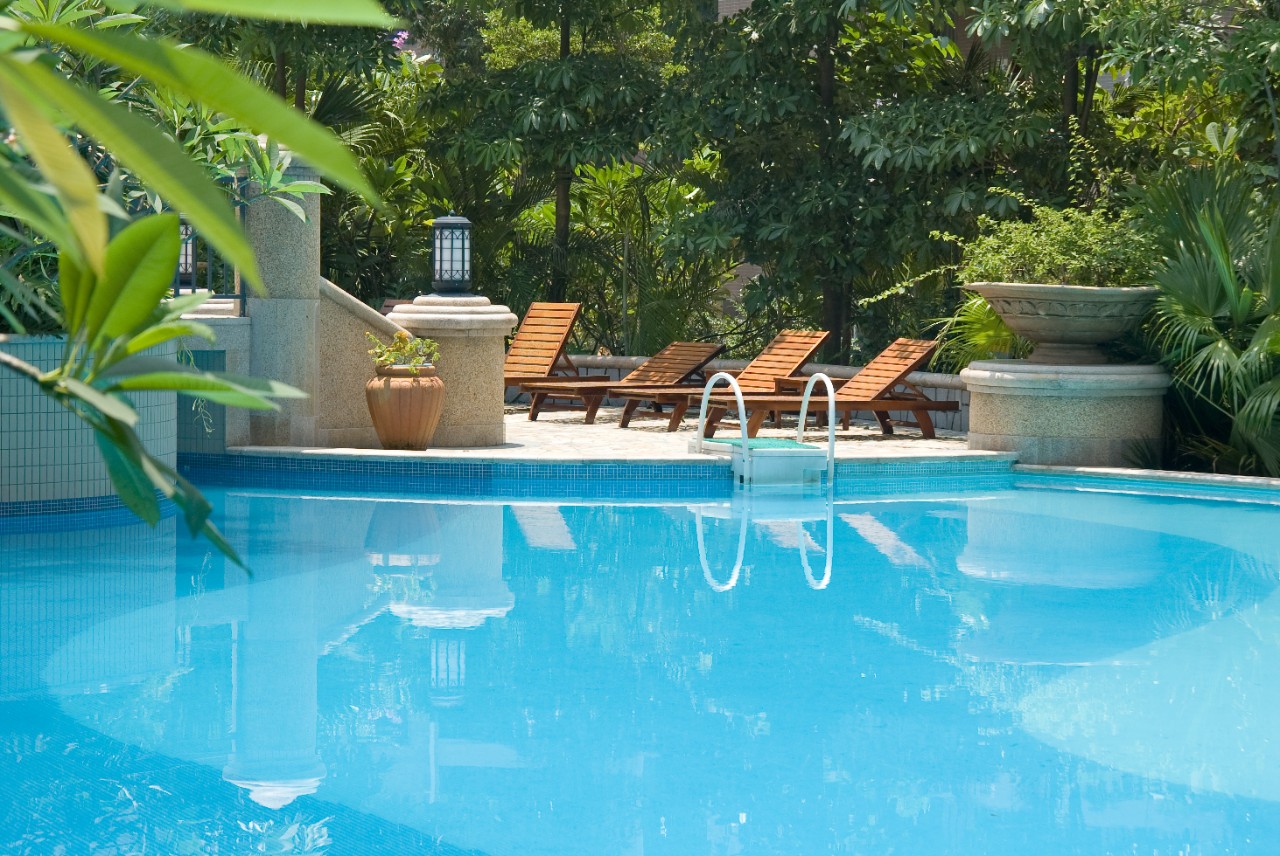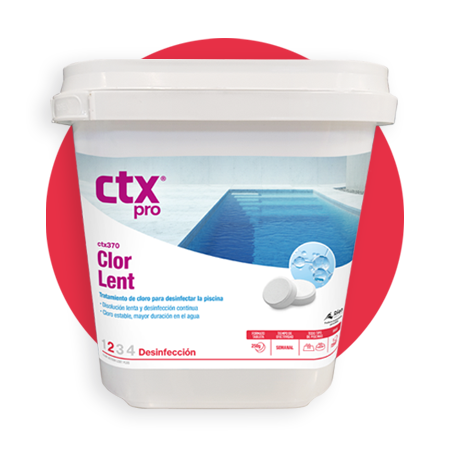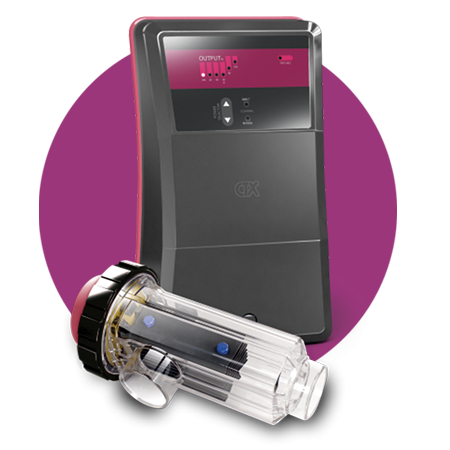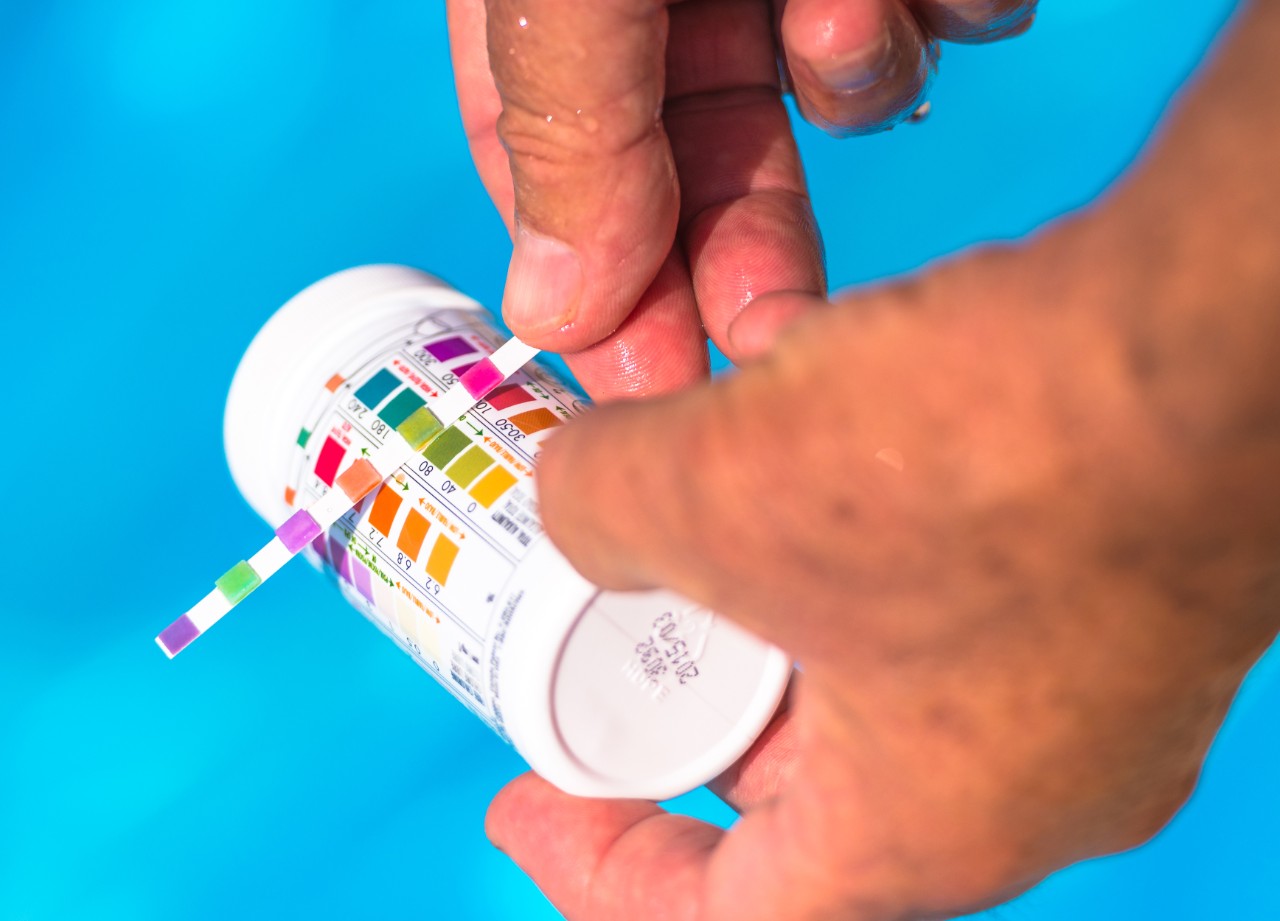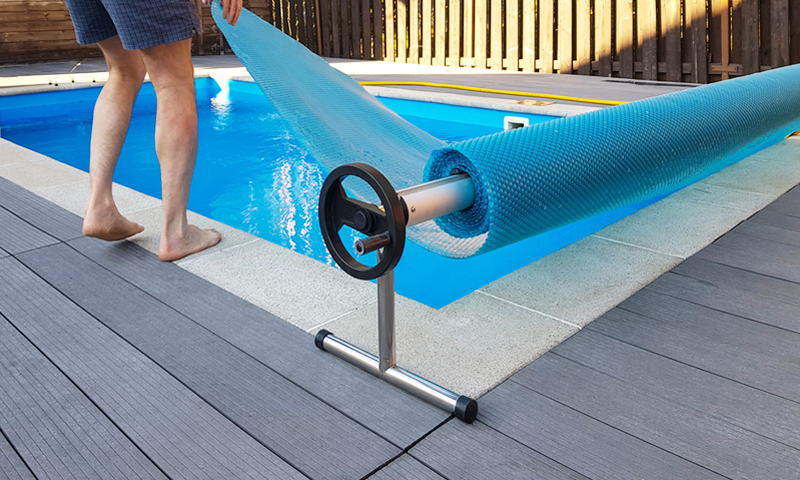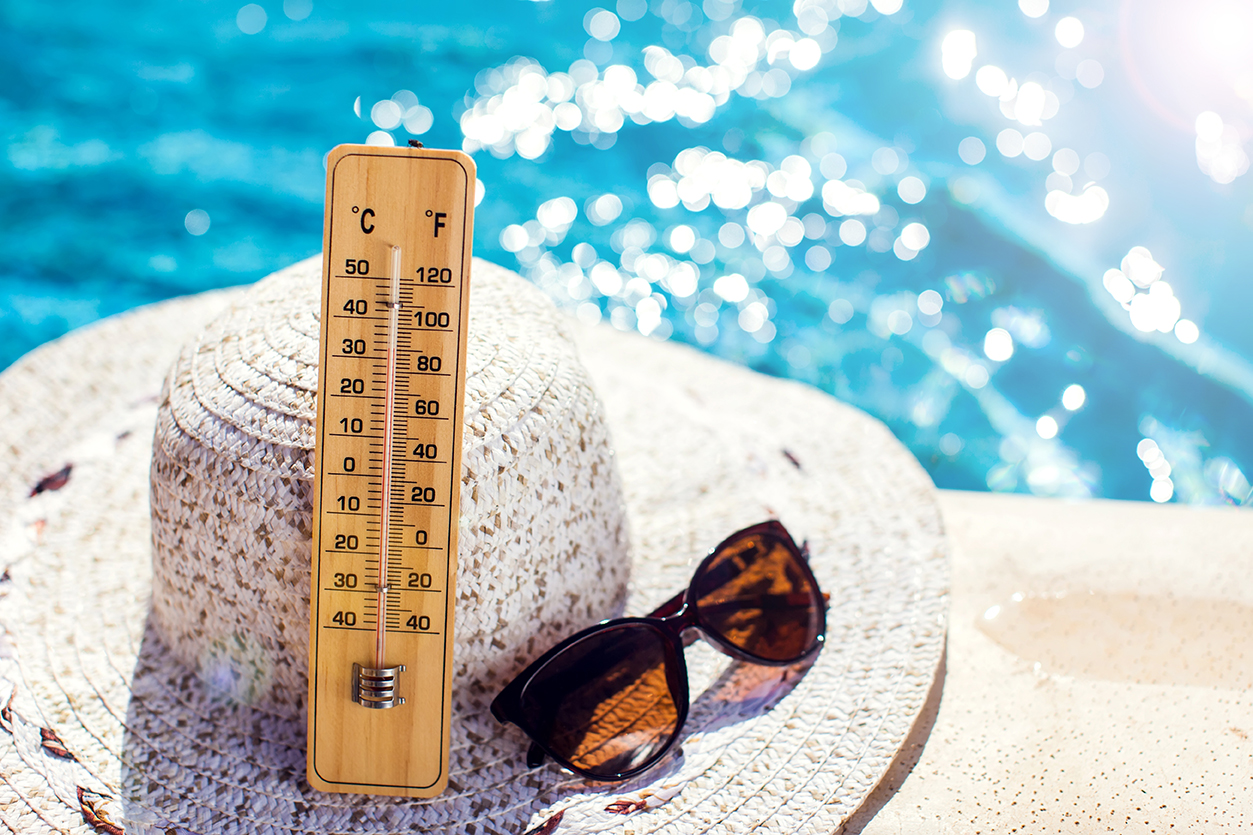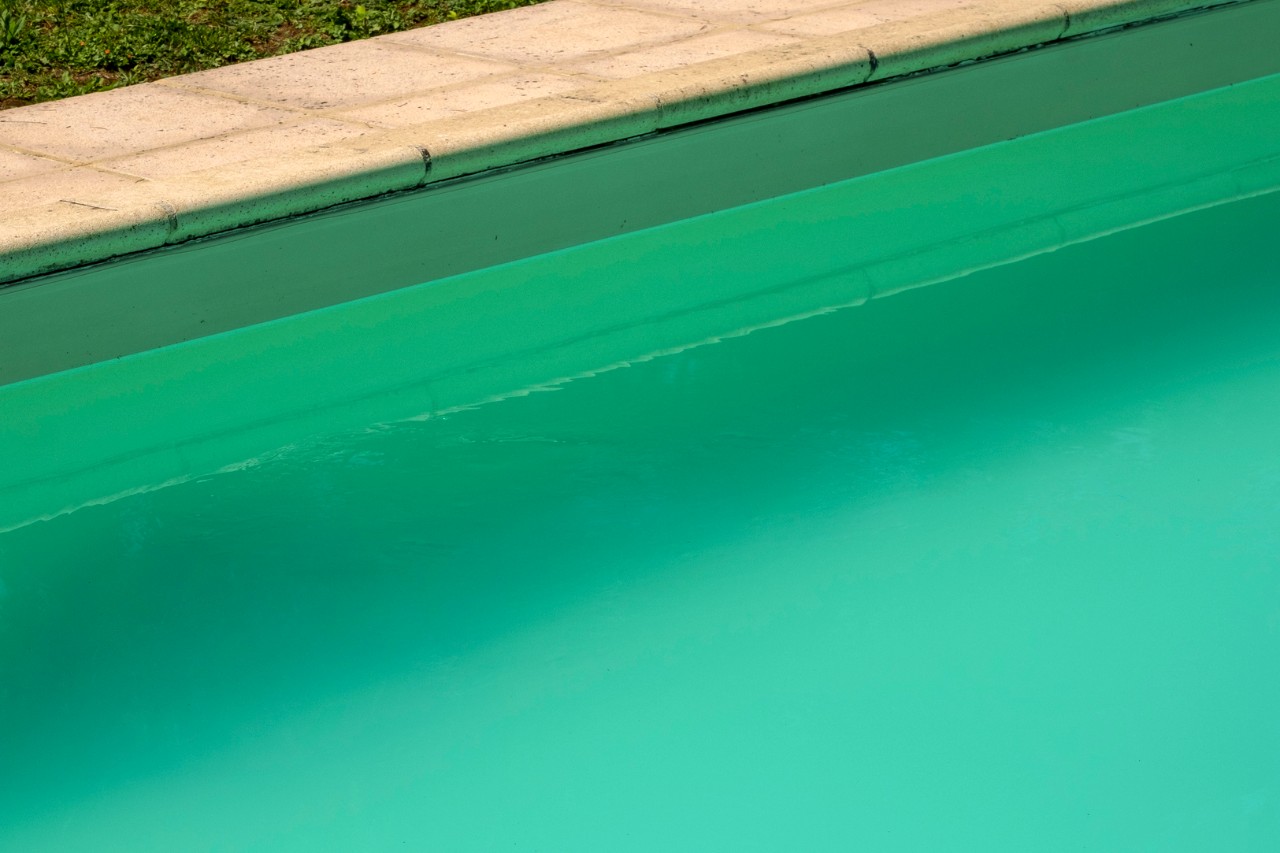With the arrival of swimming season, pool maintenance and disinfection become very important. Until a few years ago, the only alternative for home pool maintenance and disinfection was chlorine. That's why they are called "chlorine pools" because they are treated with chlorine.
However, in recent times, using salt in combination with a salt chlorinator for pool maintenance and disinfection has gained a lot of prominence and has become an excellent option for domestic use. These pools are called "saltwater pools." In that sense, you must be wondering which is better, to have a "saltwater pool" or a "chlorine pool"?
We will analyse in detail the main differences between chlorine pools and saltwater pools and help you decide which one best suits your needs.
Differences between saltwater and chlorine pools
Chlorine and salt are two alternative methods for pool water disinfection. However, each of them works in a different way, offering different advantages that are worth knowing before deciding between having a chlorine pool or a saltwater pool.
To get started, in the case of chlorine pools, disinfection is achieved by adding chemical products as needed. Whereas in saltwater pools, a salt chlorinator is installed, which converts the added salt into sodium hypochlorite. This substance serves as the disinfectant for the pool water, just like chlorine products do, but with the difference that it reverts back to salt each time it breaks down. The electrical consumption is very low, and it will not be necessary to change the pool water.
It is crucial to emphasize that seawater alone does not disinfect pool water, so a pool with salt but without a salt chlorinator cannot maintain itself in good condition. A salt chlorinator is necessary to carry out the disinfection process.
A common question that often arises is whether swimming in a saltwater pool is equivalent to swimming in the sea. The answer is that it's not the same since the salt level is much lower than in the sea. The salt concentration in salt-chlorinated pool water is 4 to 6 g/l, whereas seawater has a concentration between 34 and 38 g/l.
Chlorine pools
Advantages
- Require minimal maintenance to stay in good condition.
- Maintenance costs are low in a chlorine pool.
- Chlorine is highly effective in eliminating fungi and bacteria in the water.
- Very easy to use and maintain.
Disadvantages
- It can cause skin and eye irritation in some people.
- Some people do not like the smell of chlorine.
- Chlorine may wear out swimwear.
Saltwater pools
Advantages
- Choosing salt option reduces the use of many household chemicals.
- Although the initial investment may be slightly higher, salt is an inexpensive product, making maintenance of a saltwater pool cost-effective.
- Maintenance is virtually automatic.
- Even as the water evaporates, the salt remains, so the only salt loss will occur during filter backwashing.
Disadvantages
- The installation cost is usually higher than that of chlorine pools, although maintenance is lower afterward.
How to choose between a salt chlorinator or chlorine
Choosing between a chlorine or saltwater pool is a very personal decision. It is advisable to analyse the pros and cons and determine which option best suits your needs.
If we look at the costs, installing a saltwater pool is similar to installing solar panels: the initial investment is high, but it pays off quickly, and you spend much less money over the years.
Still, chlorine is and will always be a suitable option, although the need for chemical products and a slightly more conscientious maintenance may make it more recommendable for pools that will not be frequently used by children.
Does this mean that chlorine cannot be used in family pools? Not at all, just that you will need to pay a bit more attention to how young children react to chlorinated water.
And remember that regardless of the option you choose, it is essential to ensure proper maintenance and ensure that water levels are in optimal condition. To determine the water levels, we recommend using "CTX 7-in-1" test strips if you opt for a chlorine pool or "CTX Salt" test strips if you choose a saltwater pool. Based on the results of the test strips, make any necessary adjustments to ensure proper pool maintenance.




